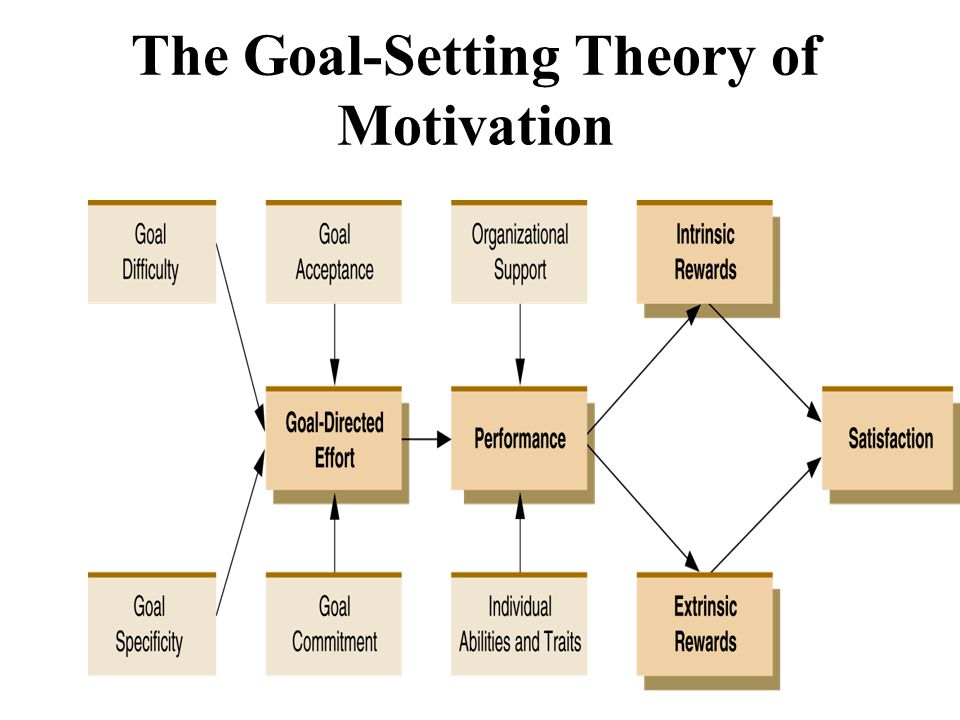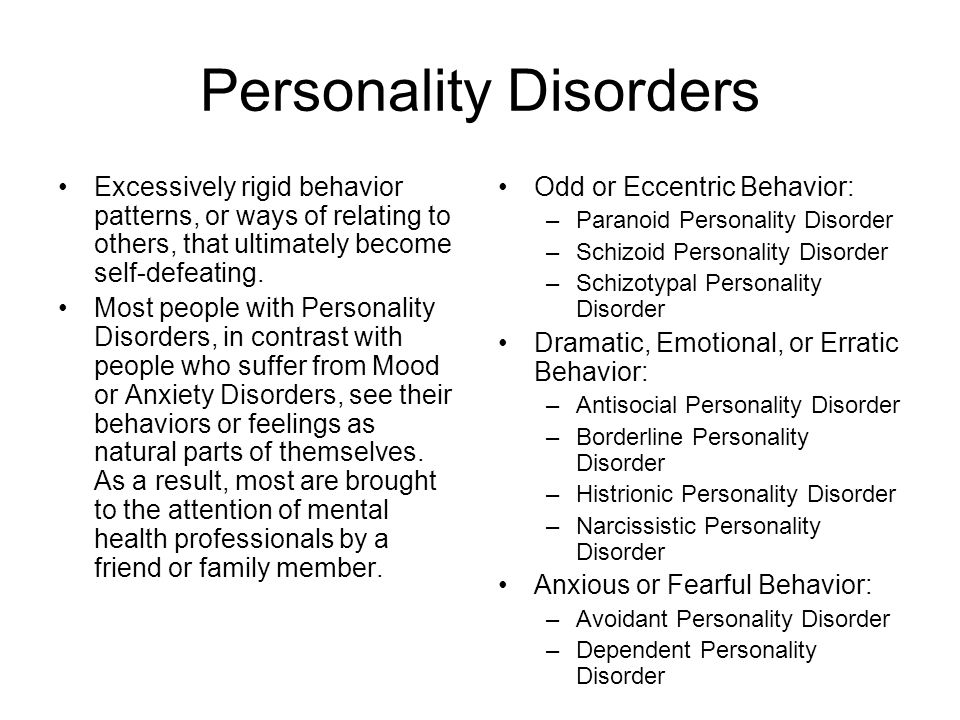How to reach the goal in life
Seven simple steps to achieving your goals
by Ian Usher
14 August 2014
We all know that ‘goal setting’ is very important, but remember that setting your goal is only one of the steps on the journey in order to achieve it...
To set a goal you need to decide what it is that you want to accomplish and – this is the important bit – write it down. It’s as simple as that. You have set your goal by writing it down. Goal setting is easy.
But you want to achieve that goal, don’t you? Ah, now that takes a little more effort. That takes application and action.
Read more: Is waking up at 4am really the secret to success?
Much has been written on the importance of goals and their relationship to success and happiness. As entrepreneurs, I am sure most, if not all of you already know the importance of taking action to achieve your goals.
But how many of us practice this on a daily basis?
To help keep me focused on achieving my goals, I follow a simple seven-step outline. Practice this and I believe it will help propel you towards the success to which you aspire:
Get your goal out of your imagination and on to a piece of paper. This then becomes a statement of intent. The process of writing down your goal or target forces the subconscious to accept the commitment you have made to work towards your target.
It has been suggested that you should write your goal out not just once, but once every morning to keep you focused throughout each day.
Getty Images
Set a target date by which you will complete your goal.
If your goal is a larger, more complicated challenge, break it down into smaller steps and determine a deadline for each separate step. Put these important dates into your diary or computerised planner.
You can begin to work on your mindset long before you tackle your first goal. Develop a positive, “glass-half-full” approach to every aspect of your life, including your thoughts about how you will achieve your goals.
Read inspirational books, hang out with other motivated people, and believe in your own abilities. Work on your own attitude at every opportunity. This should remain a lifelong process.
It is very possible that a new goal will necessitate learning a new skill or will require some form of personal growth. Figure out what new knowledge you will need, or what new skills you will have to develop. Find the best source for gaining this knowledge and invest wisely to develop the assets you need on your path to success.
Getty Images
It is important not to procrastinate. The moment when real action is required is often when many goals fall by the wayside. You don’t need to wait until everything is just right. Get started now and make adjustments as you go along. Take that first step.
If you wait for the moment when everything is in perfect alignment you will never get started. This first step is always the hardest one to take. Once you have made a start the next step will be slightly easier, and the one after that easier again. Try to make your first step an easy one to commit to. This will encourage you to make it as soon as possible, so you quickly begin the journey towards achieving your goal.
Try to make your first step an easy one to commit to. This will encourage you to make it as soon as possible, so you quickly begin the journey towards achieving your goal.
The path to the ultimate completion of your goal is unlikely to be a straight and simple one. Do not give up when you encounter the first or any subsequent obstacles.
Always keep the end result in focus, maintain your excitement and enthusiasm, and keep moving forward. See each difficulty you meet as an opportunity for learning and growth.
Commit to doing at least one thing every day that will move you a little closer towards your goal. Do not halt this forward progress on your path to success until your end result has been achieved.
When you complete your goal it is important to reward yourself for this achievement. Look back over your accomplishments and enjoy the satisfaction that success brings. This will train the subconscious mind to focus on activities that produce successful results.
Once you have enjoyed your reward, set your next goal, making it bigger and more challenging than the last.
We can all have goals, but to be a ‘top-achiever’ you must be focused. You must know, understand and follow these basic skills for setting and attaining your goals every time. I wish you good luck with whatever goals you set – may they be achieved in the finest of style.
Ian's book '7 Simple Steps to Goal Achieving Success' is available on Amazon.
This is a guest blog and may not represent the views of Virgin.com. Please see virgin.com/terms for more details. This blog was originally published in 2014
How to Set Goals and Achieve Them: 10 Strategies for Success
Jump to section
Goals: what are they, and what aren’t they?
Why should you set goals for yourself and your team?
How to set realistic goals at work and in life
10 tips to achieve your goals
Ready to set life goals and achieve them?
The word ‘goals’ is thrown around a lot these days. So much so that it can be confusing what a goal really is.
Are resolutions and objectives the same as goals?
Why do we need to set goals?
Research by a psychologist and career coach at Dominican University of California shows that there’s a direct correlation between setting goals and achieving success. Properly defined goals help trigger new behaviors and help you focus on what’s important to you.
Of course, it’s not just about setting goals. It’s also about achieving them.
Let’s take a look at the top strategies for how to set goals and achieve them in both your personal and professional life.
Goals: what are they, and what aren’t they?
Before setting goals, you need to know what a goal is.
A goal is something you want to achieve. It’s the desired result that you, or a group of people, plan and commit to achieving.
Goals are often long-term. They relate to people’s life and career plans or the long-term goals of a company or organization.
Put simply, a goal is a dream with a deadline.
Still a bit confused? Here are some characteristics of what goals are and what they aren’t.
A goal is:
- Your vision for the future. Goals should be the result of careful consideration of a personal vision statement and things you want to achieve.
- Time-sensitive. The most effective goals are time-bound. Goals generally have a longer time frame. They can then be broken down into smaller, short-term objectives.
- Large in nature. Don’t be afraid to set a goal that seems like a reach. Feel free to think outside the box and dream big. You can set smaller, short-term goals to help you get there.
A goal is not:
- An objective. While goals describe what you want to achieve, objectives are the steps taken to reach the goal. For example, “I want to become a confident public speaker” is a goal. “I will work with a coach to practise my public speaking skills by the end of this month” is the objective.
- A resolution.
 Resolutions are often temporary, giving short-term gratification (opposed to delayed gratification). While a resolution is a decision to do or not do something, a goal is what you want to achieve.
Resolutions are often temporary, giving short-term gratification (opposed to delayed gratification). While a resolution is a decision to do or not do something, a goal is what you want to achieve. - A mission. Mission statements create a clear and focused direction to follow. It’s the statement of purpose from which a company, business, or individual operates. On the other hand, a goal is a specific aim you or your team works toward.
Why should you set goals for yourself and your team?
Here are some of the many reasons why setting goals for yourself and your team is important.
It gives a sense of direction
Taking the time to think about what you want in life gives you a sense of purpose.
For example, you could create a 5-year plan based on what you want your life to look like in five years. Having this long-term plan can help you move from just dreaming into actually doing.
In the workplace, setting goals helps to set a clear path of where you want your team to go. It also helps to set expectations of different team members.
It also helps to set expectations of different team members.
It helps to see the bigger picture
Setting goals helps us take a step back and get some perspective on what’s really important in life. It’s the first step toward creating a life full of meaning.
At work, setting goals as a team helps everyone get the whole picture. Knowing the long-term goal and what a company is striving toward can help each team member perform better in their role.
It provides motivation
By nature, consciously setting goals gives you something to aspire to. Having a specific goal will motivate you (and your team) to put your best foot forward.
As a team member, having a clear vision of what your team is aiming to achieve provides inspiration and motivation. Working with your team to move toward a common goal is motivating and satisfying, giving your team purpose.
It gives you greater control of your future
Setting goals puts you in the driver’s seat of your life. Just by writing down goals, you are actively acknowledging what you want out of life.
Just by writing down goals, you are actively acknowledging what you want out of life.
It’s the first step toward taking control of your future.
How to set realistic goals at work and in life
Now that you know how beneficial goals are, it’s time to dive into how to set goals and achieve them.
Whether you’re setting group goals for your team or personal goals, it’s important to start with goals that are realistic.
Here are tips for setting both personal and team goals:
Personal goal setting tips
Let’s take a look at three tips for setting personal goals.
1. Consider your passions
Part of the process for how to set life goals should be deciding what inspires you and what your values are. You should be passionate about your goals if you want to achieve them in the long run.
Your goals should be meaningful to you and provide you with a sense of pride once you meet them.
2. Set goals you can control
If your goal is based on something outside of your control, you won’t be able to control whether or not you actually achieve it.
Your personal goals shouldn’t be dependent on other people. They also shouldn’t be reliant on external factors that you have no control over.
Be realistic about what you can and can’t be directly responsible for.
3. Imagine your future
Take some time to really think about what you’d like your life to look like. What does your ideal future entail?
For example, if you’re setting personal career goals, ask yourself some questions that will point you in the right direction.
How much money do you ideally want to earn? Do you want to work for yourself? How many hours do you want to commit to on a daily basis?
Even if these questions don’t immediately help you pick a single job, they will certainly make you realize what you don’t want your career goals to be.
Tips for setting goals at work
Let’s take a look at three tips for setting team goals:
1. Brainstorm
Before you write down the first goal that comes to mind, take time to brainstorm as a team. Asking big questions like “What would you do if you knew you couldn’t fail?” will get the creative juices flowing.
Asking big questions like “What would you do if you knew you couldn’t fail?” will get the creative juices flowing.
2. Include everyone
It’s important that everyone is heard during the goal-setting process. Each member of your team should feel they can speak openly and contribute their ideas for goals.
Having everyone’s input will help create goals that everyone is invested in.
Write down each team member’s ideas, no matter how silly, so that they feel heard. Together, you can go through each goal to decide if it works for the whole team.
3. Ask why
It’s important to discuss the purpose of your group goal so that everyone is on the same page. During your goal-setting session, create a relaxed atmosphere that encourages questions from everyone if there is any uncertainty.
What are we doing? Where do we want to be? What does success look like?
Every team member should have a shared vision for why you have set this common goal. It will give your team clarity on what you want to achieve and make it easier for everyone to work together.
10 tips to achieve your goals
Setting goals is just the beginning. After taking the time to identify what your goals are, achieving them is a whole other ball game.
Working to achieve your goals can feel overwhelming at times. Here are some effective goal-setting tips on how to achieve life goals to the best of your ability.
1. Have SMART goals
You’re not going to achieve your goals if they aren’t SMART. If you haven’t heard of SMART goals already, they are goals that are:
- Specific. There’s no point in setting vague goals that don’t achieve anything specific.
Research by the creators of goal setting theory, Locke & Latham, found that in 90% of studies conducted, specific and challenging goals lead to higher performance than when people were set either easy goals, “do your best” goals, or no goals at all.
It’s important for both you and your employees to have clear and established aims, to avoid potentially setting goals so broad that they are overwhelming and therefore too difficult to set into action.

- Measurable. Once you have a specific goal pinned down, it’s important to be able to measure the success or completion of the goal.
This doesn’t have to be in the traditional sense, like on a numeric scale or a statistic, it just has to be measurable in some sense, so that it is clear when you have reached or are close to reaching your goal.
- Attainable. A SMART goal must be within reach. Lean on data, analytics, and research to help set attainable goals.
- Relevant. It is essential that any goals set for teams or individuals are relevant to company-wide aims.
Of course, goal completion is important, and having goals met or worked towards is the overall idea when setting them, but this is only really beneficial when the goals are productive in the workplace environment and will contribute to company success in some way.
As a manager, it is particularly important that you help your employees link their goals back to the wider team and company-wide goals.
 One of the best ways to motivate your employees is to make sure they know how their work is contributing to the bigger picture.
One of the best ways to motivate your employees is to make sure they know how their work is contributing to the bigger picture. - Time-bound. Goals must be time-related. It’s not productive to set a deadline too far in the future for a simple task, or an unrealistically short deadline for something complex and time-consuming.
This common pitfall can be incredibly demotivating for staff. They’re either left with an abundance of time in which they are not pushing themselves, or left feeling stressed and demotivated when they fail to complete goals in the time frame provided.
By setting goals that have these characteristics, you’re setting yourself up for greater success.
SMART goals examples
Now, let's walk through some SMART goal examples.
Example 1:
S. Provide more growth and learning opportunities to each member of my team
M. Give feedback to each member at least 2 times per month
A. Feedback should come from the manager
R. Improves team communication and feedback culture
Improves team communication and feedback culture
T. Provided before the end of the next quarter
Example 2:
S. Have customers complete satisfaction rating surveys at the beginning of their contract and again after two quarters
M. Increase customer satisfaction by 15% over the next two quarters
A. Customer success team to analyze and report improvements every two weeks
R. Become well-known as a company for our focus on customer satisfaction
T. The following 2 quarters
Example 3:
S. Begin new social media campaign
M. Generate 75 new content downloads
A. Marketing team responsible for running campaign and measuring performance
R. Promote our new feature
T. In the next two months
2. Write them down
Don’t just daydream about your goals — put pen to paper and write them down. This makes your goals more tangible and makes them seem more real.
A study by Dr. Gail Matthews of Dominican University of California shows the effectiveness of writing down goals. According to his research, people who write their goals have a better chance of accomplishing more than those who do not write down their goals.
According to his research, people who write their goals have a better chance of accomplishing more than those who do not write down their goals.
(Image Source)
3. Make your goals visible
To keep your eyes on the prize, put your written goals somewhere you’ll see them. It should be a place you visit regularly so that you’re constantly reminded of where you want to be.
If it’s your personal goals, put them on your bathroom mirror or fridge as a nudge every morning of what you want to achieve.
For teams, your group goals should be somewhere all your team members can see them. This could be a bulletin board or incorporated online into your group management software.
4. Break it down
Because goals are often long-term and abstract by nature, make them more digestible by breaking them down.
Use a “goal ladder” by writing your main goal at the top rung of the ladder. Work your way through the rest of the ladder steps, writing down the smaller goals you need to achieve in order to achieve your main goal.
5. Develop a plan
Now that you know what you’re working toward, it’s time to figure out how you’re going to get there.
Write down the individual steps you need to take to achieve goals. Creating an action plan will keep you on track. As you work your way through each step of your plan, cross it off so you can see how much further you have to go and feel optimistic about your progress.
6. Take action
Goals aren’t going to achieve themselves. Once you’ve got a clear plan of how you want to achieve your goals, it’s time to get proactive.
Put your plan into action. Even the smallest act makes you one step closer to your goal.
7. Keep perspective
It can be easy to become obsessed with achieving your goals. You might reach a point where you feel you would do anything you have to in order to get closer to achieving your goal.
But this can lead to burnout and even abandonment of your goal.
Avoid burnout by living a balanced life. Take breaks from your plan and look at the bigger picture. Practice kindness toward yourself and give yourself time.
Take breaks from your plan and look at the bigger picture. Practice kindness toward yourself and give yourself time.
8. Identify potential obstacles
Be realistic in that you’re going to face challenges along the way. Recognize what these problems might be and make a note of them.
Being aware of your potential obstacles will make them less intimidating if you are faced with them along your journey toward success.
9. Be accountable
Trying to accomplish a goal entirely by yourself can be lonely and overwhelming. Accountability helps you make consistent, steady progress and keeps you striving toward your goals.
Keep yourself accountable by sharing your goals with a friend. If it’s a group goal, have your team share their goals with another team.
10. Reflect and adjust
Maybe you haven’t achieved your goals in the time frame you wanted to. Maybe your goals were a bit too unrealistic. And that’s ok.
Rather than feeling defeated, take time to review your goals and see what you can change. You might need to adjust your goals or maybe just tweak your plan to achieve them.
You might need to adjust your goals or maybe just tweak your plan to achieve them.
Ready to set life goals and achieve them?
Now that you know how important goals are, it’s time to take the first step toward setting goals and achieving them.
Whether it’s personal goals for yourself or company-driven goals for your team, the goal-setting process can help you find purpose and meaning in your life.
Don’t put too much pressure on yourself and your team members. Even if you don’t reach all of your goals, just having them written down can provide a deeper sense of fulfillment and satisfaction.
Still not sure how to set goals and achieve them? Or do you just need more help on your goal-setting journey?
Get in touch with a BetterUp coach to guide your team on the path to reaching their full potential.
How to Achieve Any Goal: A Universal Guide
August 23, 2021Motivation
All you need is a good plan and courage.
Iya Zorina
Author of Lifehacker, athlete, CCM
Share
0 You can not only read this article, but also listen to it. If it's more convenient for you, turn on the podcast.
If it's more convenient for you, turn on the podcast.
Things to Know Before You Begin
1. There are things that cannot be achieved or simply should not be achieved. Becoming a rock star, marrying a famous football player, driving through the city at night to buy that same ice cream - it is much more pleasant to imagine than to experience in reality.
2. Sometimes desires are not really yours, but you don't know it. For example, you may think that you want to be a successful lawyer, but in reality you want your father to be proud of you. Or you dream of becoming a hermit and you don't suspect that you really just want to get away from your obnoxious boss.
3. Achieving the goal will not provide you with the satisfaction you expect. When your dream comes true, you will not feel as much joy as you dreamed. We tend to overestimate both the amount and duration of happiness from wish fulfillment, so be prepared.
Before you jump into the fight for your dreams, consider this. Otherwise, it may turn out that you have wasted several years, or even half of your life.
How to achieve your goals
Determine what you really want
Often we don't even know what we want. Many of our desires are born out of dissatisfaction and sound like: “I don’t know what I want, but definitely not this.” Be specific.
Do you really want to work for yourself or are you just tired of your job? Do you really need abs or do you dream of becoming healthy and energetic?
You must know exactly what you want. Imagine in detail that you have already achieved what you want, evaluate not only the pluses, but also the minuses - they always exist. What do you feel about it?
Eliminate conflicting desires
“I want to be in good shape. I also hate playing sports.
Often a new goal remains unfulfilled because you have an opposite desire that contradicts it. Take, for example, a good physical shape and a sedentary lifestyle. Being passive and not exercising is also your desire. It comes from the desire to avoid discomfort and prevents the fulfillment of a new desire - to get in shape.
Being passive and not exercising is also your desire. It comes from the desire to avoid discomfort and prevents the fulfillment of a new desire - to get in shape.
All reverse desires are caused by unwillingness to leave the comfort zone and fear of the unknown: training, a new job or a hobby.
Think about what needs to be done to achieve the goal. See if you don't want to do it.
Find out how other people have achieved what you aspire to
It is unlikely that you want to achieve what no one else has been able to before. Use the experience of others to achieve your goals. Just search the Internet for people who have already done it: made a lot of money, ran a marathon, won a competition in any sport, or learned three languages.
If the person has written an autobiography or a book of advice, use it, if not, try contacting and asking for advice directly. Just send an email asking for help. There is a chance that you will receive valuable tips and warnings that will help you achieve what you want faster.
Make a better plan
Make a simple plan from the advice given to you. Imagine how you would achieve what you wanted if you were not afraid of anything and had incredible willpower.
Now watch how the fearful part of your consciousness is trying to change this plan, to make it less painful. Now you are observing your opposite desire - to avoid discomfort.
If you are trying to modify the original plan so that there is no discomfort in it at all, then the desire to avoid difficulties is about to win. The further your plan deviates from the original, the less likely you are to actually achieve your goal.
Resist the urge to avoid the unknown and discomfort.
Amend the plan if necessary
So you have a plan. And you started to move according to it. If you are progressing, then there is no problem, keep moving. If not, ask yourself four questions:
- Am I following the plan? If not, then start following.

- Is there any minor part of the plan that needs to be changed? If there is, change it.
- Do I need a different plan given what I now know? If so, develop a tactic that suits your current situation.
- Do I feel that my goal is unattainable or that I do not need it? If so, quit and do something else.
As a rule, all the difficulties and problems that you meet on your way have already been experienced by other people. Google it.
If your plan isn't working, make adjustments or change it. If your goal no longer seems attractive to you, give it up.
What can prevent you from achieving what you want
Desires of other people
Your family and friends wish you happiness, but they may not approve of the path chosen to achieve it. Perhaps they will consider that your desire will not bring you anything but suffering.
In addition, your goals may conflict with what your loved ones want. For example, parents dream that you are always there and not in danger. Of course, they will be against your move, dangerous journey or extreme hobby. Consider this and do not expect comprehensive support from others.
For example, parents dream that you are always there and not in danger. Of course, they will be against your move, dangerous journey or extreme hobby. Consider this and do not expect comprehensive support from others.
Your reverse desires
The real reason for all failures is the desire for predictability and comfort. This is a real invisible fence that keeps us from achieving our goals.
Each of us is capable of incredible things. The more unusual the desire, the more we simultaneously want not to achieve it, remaining in the comfort zone.
We are timid creatures who want to keep the usual order of things with all our might, no matter how dull and rotten it is. We have an excuse: this quality is essential for the survival of the species. But sometimes it really bothers us.
When you accept the fact that fear and the unknown accompany you in any worthwhile endeavor, it becomes a little easier. Not easier, but easier.
You have decided what you want. Do it. If you don't know what to do, the next step is to find out.
Do it. If you don't know what to do, the next step is to find out.
Read also 🧐
- How dreaming destroys your motivation and how to stop it
- 3 psychological tricks that will teach you how to get what you want
- 4 steps that will bring you closer to abandoned goals
Basic steps to achieve any goal, how to formulate it correctly
Everyone dreams of being successful - having a high salary, a prestigious job, a loving family. But often dreams turn into "ghosts of the past" due to incorrectly set goals or insufficient work on them. How to achieve the goal? There is a simple but working algorithm for this.
How can you achieve your goal?
The question of how to quickly achieve a goal is of particular interest to modern man. We all realize that the path to success and self-realization consists of achieving goals, albeit not always large, but significant for each person personally. We often see headlines: "How to achieve high goals", "How to achieve goals the right way", "How to achieve your desired goal. " But, as a rule, we are talking about motivational texts without any practical benefit. Before deciding how to achieve your goal in life, you need to answer simple questions for yourself:
" But, as a rule, we are talking about motivational texts without any practical benefit. Before deciding how to achieve your goal in life, you need to answer simple questions for yourself:
- Is this really your desire? It happens that desires and all sorts of “I want”, which a person positions as a goal, are imposed on him from the outside. Therefore, before determining the trajectory of movement, listen to yourself.
- Is the goal or the process of achieving it important to you? Setting a goal for ourselves, each of us imagines how he will go towards it, what he will do for this. Answer honestly to yourself the question, are you really interested in the end result or do you need emotions from the process itself?
How to achieve any goal in life?
There is no universal way to achieve any goal - each one is different and depends, among other things, on the circumstances and methods chosen. The main goal of a student can be a session passed with excellent marks, and the goal of a private entrepreneur is to increase sales by 30%. Each of them will choose the tools to achieve the result that are right for him, and it is pointless to look for a single instruction on how people achieve their goals.
Each of them will choose the tools to achieve the result that are right for him, and it is pointless to look for a single instruction on how people achieve their goals.
How to set a goal and achieve it?
The main question that is asked by everyone who needs results is “how to set a goal and achieve it?”. At this stage, we recommend that you follow the following:
- Be clear about your goal. Often it is precisely the lack of assembly of the definition, the ephemeral nature of the desired concepts that become a stumbling block.
- Indicate the dates. So that the path to the goal does not stretch for many months, or even years, indicate the deadlines. Perhaps it is the deadline that will help you get together and act without delay.
- Work out the plan. This is a very important element that will help you understand the mechanism of your actions and the sequence of steps. If there is no plan, the goal with a high degree of probability can already be considered unachieved already at the initial stages.















